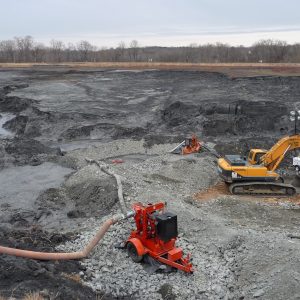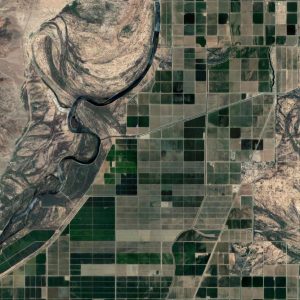The Stream, January 30: Global Food Shocks Becoming More Common, Often Due to Drought
The Global Rundown
Food shocks due to extreme weather conditions like drought have become more common in recent decades, a study shows. An exclusive report warns that the United States Environmental Protection Agency won’t set drinking water limits for PFOA or PFOS chemicals. Five engineers are arrested in the aftermath of a deadly dam collapse in Brazil. A team of Australian scientists find that space technology can predict droughts up to five months in advance. A growing numbers of farmers near Boulder, Colorado, are renting water from the city. The water minister of New South Wales, Australia, says the state has “seen nothing like this” in regards to recent fish kills.
“I’m very happy to acknowledge what we are seeing here is nothing like we’ve ever seen in the state before. And that’s why I’m here. So I’m not downplaying this.” –Niall Blair, the primary industries manager of New South Wales, Australia, in reference to brutal fish kills that have hit the state in the past two months. Locals say fish are continuing to die in the Lower Darling river. Investigations into the exact causes of the fish kills are ongoing. The Guardian
In context:
HotSpots H2O: Massive Fish Kills Fuel Anger Over Murray-Darling Basin Management
What’s Up With Water – January 21, 2019
Latest WaterNews from Circle of Blue
HotSpots H2O: In Test of Regional Water Cooperation, Pakistan Inspects Indian Hydropower Projects — India and Pakistan will rekindle the cooperative spirit of a nearly six-decade-old river-sharing treaty this week.
What’s Up With Water – January 28, 2019 — This week’s edition of What’s Up With Water includes stories on land subsidence in Iran due to aquifer depletion, and a 5-year plan to clean India’s Ganges River.
By The Numbers
5 Engineers who were arrested in connection with a deadly mine collapse in Brazil that occurred last week. Three of the engineers are employed by Vale, which owns the collapsed dam. The other two engineers worked for a German company that conducted the dam’s most recent safety inspection. The disaster has left at least 84 people dead and an additional 276 people missing. The New York Times
226 Food shocks studied by the University of Tasmania in a recent report. The study found that abrupt losses of crops, livestock, or fish became more frequent between 1961 and 2013, largely due to extreme weather events like drought. Reuters
Science, Studies, And Reports
A team of scientists from The Australian National University recently spent several months gathering satellite data on water availability below the earth’s surface. The researchers found that the data could predict drought up to five months in advance. The team says space technology could prove invaluable in preparations for drought and bushfires. Phys.org
On The Radar
The U.S. EPA does not plan to set drinking water limits on PFOA and PFOS chemicals, according to two sources familiar with the upcoming Safe Drinking Water Act. The toxic per- and polyfluoroalkyl substances have been detected in groundwater near military bases and chemical plants, and are linked to cancer and other illnesses. The EPA says it will not discuss the contents of the Safe Drinking Water Act until it is made public. A release date has not been set. Politico
Units of water from the Colorado-Big Thompson system near Boulder, Colorado, can be bought and sold regionally–and ownership of the units has largely shifted from farmers to municipalities in recent years. Now, agricultural users are becoming increasingly dependent on renting their water from cities like Boulder and Longmont. Times-Call Local News

Kayla Ritter is a recent graduate of Michigan State University, where she studied International Relations and Teaching English to Speakers of Other Languages. She is currently based in Manton, Michigan. Kayla enjoys running, writing, and traveling. Contact Kayla Ritter






Leave a Reply
Want to join the discussion?Feel free to contribute!